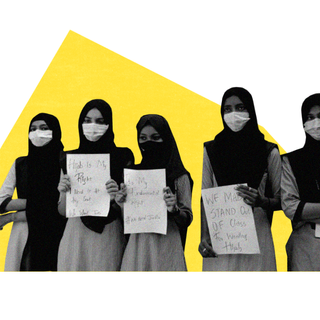
Belgian Employees Now Have the Legal ‘Right to Disconnect’ After Work Hours
While some say the disconnect policy responds to the “new realities of the digital age,” others note a blanket right may not solve overworking problem.

As ofFebruary 1st, more than 65,000 government employees in Belgium have the right to make themselves unavailable at the end of a workday. That is, they are legally entitled to not respond to emails or work calls and completely detach themselves from work — save for any “exceptional” reasons. With this, Belgium becomes the latest country to align with a new paradigm of instituting healthierwork culture.
The “right to disconnect” argues for a work ethic that doesn’t conform to “constant availability”; where workers don’t have to perpetually live under the pressure of “being plugged in.” The pandemic and work from home have reframed how we work — and how we ought to think of work. Without the right to disconnect, said Petra De Sutter, the Belgian minister for public administration, “the result will be stress and burnout and this is the real disease of today.”
Last year, when Portugal “banned” employers from calling and texting people after work others — doing so would make themliable to fines. However, there was no legal right granted in the process. Other countries in Europe, like France and Italy, have some form of “right to disconnect.” Organizations like Volkswagen and Daimler have voluntarily put in place “disconnect from work” policies; such as stopping mail servers from sending emails to employees post work. The European Parliament in November last year proposed an EU-wide law that would protect workers who wished to “disconnect.”
“Now is the moment to stand by their side and give them what they deserve: the right to disconnect,” said Alex Agius Saliba, a Maltese MEP, who drove the vote then.
“This is vital for our mental and physical health. It is time to update workers’ rights so that they correspond to the new realities of the digital age.”
The legal right is a pre-pandemic debate. The tussle at the heart is simple: do workers have a fundamental right to mentally and emotionally sign off from work? If so, can the policies ever be hammered out effectively enough to safeguard workers’ interests? Arguably, as Saliba notes, it is a matter of “updating” people’s rights. The conversation about disconnecting from work looks very different today when the landscape of work culture co-exists with a pandemic; involving extreme mental burnout, fatigue, and loss of work-life balance.
Related on The Swaddle:
Portugal Bans Bosses From Calling, Texting Employees After Work Hours
Moreover, such a legal right acknowledges the nuance of working from home. A January study found 82% of people surveyed in India would prefer working from home. But at the same time, it bears reiteration that working from home can be demanding, as workers succumb to the pressure to be always ‘on’ and overly long working hours. It also pushes us to ask: when does work end?
As we work from home, clear boundaries between work time and personal time need to be reasserted. A legal right may work to rationalize schedules and spell outworkloads in the fine print. In some experiments where workplaces tried four-day workweeks or limited working hours, employees noted lower absenteeism and greater mental health productivity.
Arguably, people are unofficially penalized for not replying to calls or emails during “off hours.” The punitive measures don’t have to be explicit or extreme to be relevant; there are anecdotal cases of employees facing the unsaid pressure to meet unrealistic deadlines, facing criticism, or facing professional setbacks if they “chose” to remain unresponsive. The illusion of “choice” is perhaps the greatest red herring.
In India, the Right to Disconnect Bill was introduced in the Lok Sabha in 2018; under this, no disciplinary action could be taken if an employee was unresponsive to work-related calls after working hours. However, the Bill did not pass as it was floated by a member of parliament (MP) who is not a minister (Private Members’ Bills are unlikely to get discussed or passed).
Of course, the legal right to not communicate after work comes with certain hiccups — the most important of them pertaining to implementation. “In case people take calls during the ‘disconnect’ time, will they be punished for non-compliance? Will the legal machinery initiate action? To adopt the right to disconnect, the basics need to be addressed first,” argued Feza Tabassum Azmi, a human resource professor, in The Wire. “Even after three years of the law being in effect in France, there are loopholes in its enforcement.”
Moreover, any such “right” will only always apply to knowledge workers — people who have digital and economic resources. Those in manual labor, or in time-bound professions like an ambulance driver, may not ever be able to physically separate work and non-work spheres. In that sense, a disconnect policy may not actually address the problem of being “overworked.” “After all, tight deadlines may create the need to work long hours without necessarily communicating with colleagues,” noted Ope Akanbi, a professor of communication at Ryerson University. This concern is also echoed in the context of Indian labor reforms. The element concerning four-week workdays may inevitably mean long workdays.
A cultural critique also takes into account how the “disconnect,” for women and those responsible for care work, may not really amount to anything. The eight-hour workday, in its optimal setting, leaves some time for leisure; but as American sociologist Arlie Hochschild noted the remaining “second shift” will only include household chores, which are often unpaid and performed by women.
“Despite the dubious effectiveness of right to disconnect laws, they raise important questions about the organization of modern work alongside our collective expectations about the kind of work we value as a society and the time it ought to consume,” noted Akanbi. “The laws, and the resulting discussions about them, may contribute to a cultural shift away from workaholism, at least around paid work.”
The end goal, one valuing workers’ autonomy and their true “choice” in deciding a format that works best, is still miles away.
Saumya Kalia is an Associate Editor at The Swaddle. Her journalism and writing explore issues of social justice, digital sub-cultures, media ecosystem, literature, and memory as they cut across socio-cultural periods. You can reach her at @Saumya_Kalia.
Related


How Irresponsibly Sharing Videos, Images of Sexual Violence Dehumanizes Survivors
